 The Gay Uncle recently read a research study examining the role and prevalence of heterosexual romantic love in Disney’s top-grossing G-rated movies from 1990-2005. (Here’s a synopsis of the article, the entire piece can be downloaded by clicking the link at the bottom of this post). And he has to say, he finds this an intriguing area of inquiry. The researchers carefully examine twenty-plus popular children’s films (all grossed over $100 million), and find that heterosexual sexual desire and longing are not only very frequently portrayed””giving lie to the idea that these kids” filcks are devoid of sexual content””but are presented in a way that is exceptional and transcendent, with the power to break spells, stop war, change laws, or even save Christmas.
The Gay Uncle recently read a research study examining the role and prevalence of heterosexual romantic love in Disney’s top-grossing G-rated movies from 1990-2005. (Here’s a synopsis of the article, the entire piece can be downloaded by clicking the link at the bottom of this post). And he has to say, he finds this an intriguing area of inquiry. The researchers carefully examine twenty-plus popular children’s films (all grossed over $100 million), and find that heterosexual sexual desire and longing are not only very frequently portrayed””giving lie to the idea that these kids” filcks are devoid of sexual content””but are presented in a way that is exceptional and transcendent, with the power to break spells, stop war, change laws, or even save Christmas.
Big deal, right? Straight people fall in love and it affects them””and by extension, the world””all the time. Well, not exactly. One of the points is that by privileging these male/female bonds as imbued with transformative power, the movies not only normalize heterosexuality, but enforce in children a notion of its magical capabilities. It”s not just normal; it”s special. And the bludgeoning flip side of this message is, if you don”t fit into this paradigm, you”re not normal and not special. Little gay and lesbian kids hear this message (trust Gunc, he was one) and take it to heart. Now the G.U. is not in any way advocating for the avoidance of depicting love in kids” media, but he does think it”s fair to examine what we”re saying on the opic. (And he doesn”t think things have changed much since 2005. Think about the love storylines in Cars or Wall-E.)
Beyond this, it was found that the films all avoid dealing with homosexual love in any similarly overt way. Gunc’s guessing that many people wouldn”t take issue with this, imagining that this is a topic beyond the comprehension of young kids. But he”d like to point out that homosexuality is no more or less complex a topic than heterosexuality, and if we”re conspicuously feeding young kids mega-doses of overblown messages on straight loving, why isn”t there room for some like “education”¯ on the queer side? Disney”s just now bringing out their first African American princess, so far be it from The Gay Uncle to dictate when they should introduce their first gay or lesbian princess! But the sooner we stop treating homosexuality as an “adult”¯ issue, the sooner we”ll be capable of finding ways to discuss and depict it rationally with our kids.
Gunc invites people to look at two of his recent Babble articles, The Gender Spectrum, and Beyond Heather Has Two Mommies, for additional and more in-depth insights on this topic.
This is a link that will allow you to download the whole study.
315.pdf
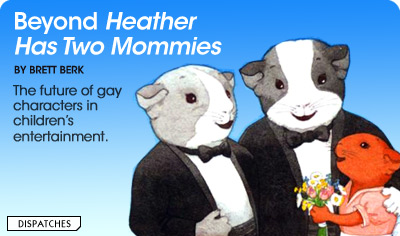 All this talk about Gays and Pride and Gay Disney Princesses (see posts below) reminded the Gay Uncle that he’s covered some of this ground before, prompting him to re-read his seminal piece “Beyond Heather Has Two Mommies”, a survey of current offerings in media portrayals of gay and lesbian characters for young kids. He thinks you should too. Here’s a teaser:
All this talk about Gays and Pride and Gay Disney Princesses (see posts below) reminded the Gay Uncle that he’s covered some of this ground before, prompting him to re-read his seminal piece “Beyond Heather Has Two Mommies”, a survey of current offerings in media portrayals of gay and lesbian characters for young kids. He thinks you should too. Here’s a teaser: The Gay Uncle recently read a research study examining the role and prevalence of heterosexual romantic love in Disney’s top-grossing G-rated movies from 1990-2005. (Here’s
The Gay Uncle recently read a research study examining the role and prevalence of heterosexual romantic love in Disney’s top-grossing G-rated movies from 1990-2005. (Here’s 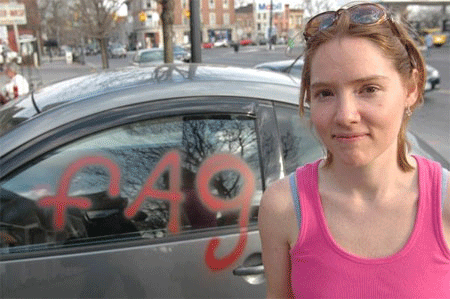 The Gay Uncle, while gay, does not love parades; they sadden him. Neither does he love the claustrophobic feeling of being pressed up against a bunch of defeated, suburban queens, walking up the vomit-stained sidewalks of his neighborhood in blazing hot summer sun (or torrential downpour) while said invaders take cell phone photos of plastic men in rainbow underpants. Neither does he enjoy parties at which he encounters belligerent drunks in tight tank tops who try to shame him for not being “in the spirit”. And he’s frankly kind of sick of the the Lady Bunny. So, no, he will not be attending the New York Pride “celebrations”. But he is pleased to be gay, in his own way. Which is why he would like to share this piece with you, the gayest ever of his gay car columns, all about the tragic and uplifting tale of FagBug.
The Gay Uncle, while gay, does not love parades; they sadden him. Neither does he love the claustrophobic feeling of being pressed up against a bunch of defeated, suburban queens, walking up the vomit-stained sidewalks of his neighborhood in blazing hot summer sun (or torrential downpour) while said invaders take cell phone photos of plastic men in rainbow underpants. Neither does he enjoy parties at which he encounters belligerent drunks in tight tank tops who try to shame him for not being “in the spirit”. And he’s frankly kind of sick of the the Lady Bunny. So, no, he will not be attending the New York Pride “celebrations”. But he is pleased to be gay, in his own way. Which is why he would like to share this piece with you, the gayest ever of his gay car columns, all about the tragic and uplifting tale of FagBug. 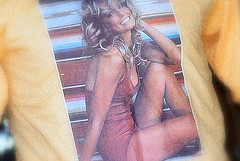 To memorialize the death of Farrah Fawcett, the Gay Uncle presents you with his homage to the transformative power of her image as read through the lens of 1970’s adolescent queer sexuality: his first published short story from back in 1996, “Farrah”.
To memorialize the death of Farrah Fawcett, the Gay Uncle presents you with his homage to the transformative power of her image as read through the lens of 1970’s adolescent queer sexuality: his first published short story from back in 1996, “Farrah”. 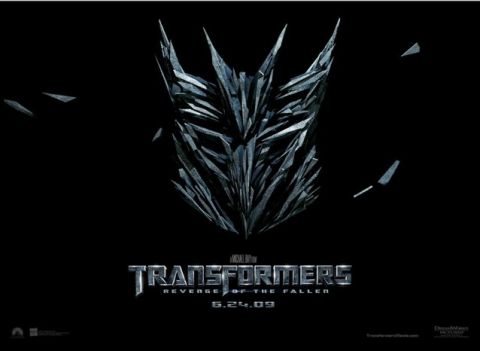 It’s a movie that’s at least peripherally for kids, which the Gay Uncle believes affords him the opportunity to cross-promote his humorous review of Transformers: Revenge of the Fallen at Vanity Fair.com.
It’s a movie that’s at least peripherally for kids, which the Gay Uncle believes affords him the opportunity to cross-promote his humorous review of Transformers: Revenge of the Fallen at Vanity Fair.com.  Some lesbian friends recently came to visit the Gay Uncle and his boyfriend at their house Upstate. And guess what? They’re trying to get pregnant! This is good news for Gunc, as it means at least one more guaranteed sale of his book. But instead of adopting an unwanted American child, or trying to steal one from the arms of its family in Malawi, they’re going the donor route. The G.U. is down with this too. But he has to admit that when they started talking about the specifics of why they chose a particular dude from the list of tens of thousands of cum shots that the Sperm Bank had in their deposit accounts, he got a little…creeped out. “He’s Italian like me, but he’s not one of those short Italians because his mother was from Denmark or Norway or something, so he’s tall. And everyone on both sides of his family has good teeth. And he has eyes like her [her partner]. And no history of heart disease or cancer. And I found out on line that they have an attractiveness scale that they use internally at the Sperm Bank to rate the donors when they come in. It ranges from two to eight point five, and when I asked the lady where he rated, she said, Eight. And when I asked how many eight point fives they’d ever seen, she said, One. So he’s our guy.” Now Gunc is down with giving your kid all the proper advantages. And he supposes when offered choices on stuff like this, he’d tend toward ticking off some of the same checkboxes. But there’s just something borderline…Eugenicist about the whole process: picking out a kid–like a handbag or sweater–who’ll match your skin and eyes, selecting a donor based on his similarity in appearance to an idealized version of yourself. It just seems like a set up for an even worse form of narcissism than the one normally derived from participating in what Gunc likes to call “The Ultimate Vanity Project”. Maybe straight people pick their partners for the same reasons: they’ll breed well? Or maybe the G.U. is the only one who finds it odd. Let him know what you think in COMMENTS below.
Some lesbian friends recently came to visit the Gay Uncle and his boyfriend at their house Upstate. And guess what? They’re trying to get pregnant! This is good news for Gunc, as it means at least one more guaranteed sale of his book. But instead of adopting an unwanted American child, or trying to steal one from the arms of its family in Malawi, they’re going the donor route. The G.U. is down with this too. But he has to admit that when they started talking about the specifics of why they chose a particular dude from the list of tens of thousands of cum shots that the Sperm Bank had in their deposit accounts, he got a little…creeped out. “He’s Italian like me, but he’s not one of those short Italians because his mother was from Denmark or Norway or something, so he’s tall. And everyone on both sides of his family has good teeth. And he has eyes like her [her partner]. And no history of heart disease or cancer. And I found out on line that they have an attractiveness scale that they use internally at the Sperm Bank to rate the donors when they come in. It ranges from two to eight point five, and when I asked the lady where he rated, she said, Eight. And when I asked how many eight point fives they’d ever seen, she said, One. So he’s our guy.” Now Gunc is down with giving your kid all the proper advantages. And he supposes when offered choices on stuff like this, he’d tend toward ticking off some of the same checkboxes. But there’s just something borderline…Eugenicist about the whole process: picking out a kid–like a handbag or sweater–who’ll match your skin and eyes, selecting a donor based on his similarity in appearance to an idealized version of yourself. It just seems like a set up for an even worse form of narcissism than the one normally derived from participating in what Gunc likes to call “The Ultimate Vanity Project”. Maybe straight people pick their partners for the same reasons: they’ll breed well? Or maybe the G.U. is the only one who finds it odd. Let him know what you think in COMMENTS below.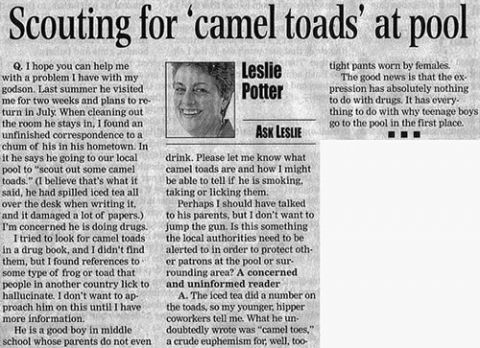 The Gay Uncle’s second favorite newspaper journalist, Heidi Stevens, is starting up a new feature in the Sunday Tribune newspapers. It’s a column where parents write in with questions, and then other parents chime in with advice. (And then an expert–like Gunc–comes in and provides two more cents.) To get the ball rolling, Heidi has some starter topics, but is looking for parents who are interested in dishing out tips. Here are the first few queries:
The Gay Uncle’s second favorite newspaper journalist, Heidi Stevens, is starting up a new feature in the Sunday Tribune newspapers. It’s a column where parents write in with questions, and then other parents chime in with advice. (And then an expert–like Gunc–comes in and provides two more cents.) To get the ball rolling, Heidi has some starter topics, but is looking for parents who are interested in dishing out tips. Here are the first few queries: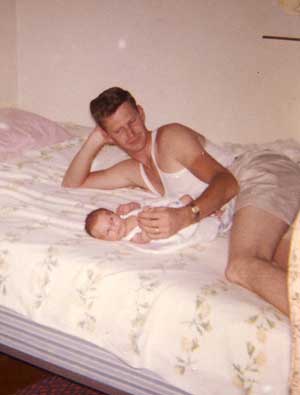 Stumped about what to get that special daddy in your life? Worried that a manscaping kit, three pairs of boxer briefs, and a gift certificate for a facial might give him the wrong impression? Wishing that he was just a little…smarter about the whole fathering thing? Well, there’s only one present that will solve for all of these issues: a copy of
Stumped about what to get that special daddy in your life? Worried that a manscaping kit, three pairs of boxer briefs, and a gift certificate for a facial might give him the wrong impression? Wishing that he was just a little…smarter about the whole fathering thing? Well, there’s only one present that will solve for all of these issues: a copy of  The Gay Uncle
The Gay Uncle 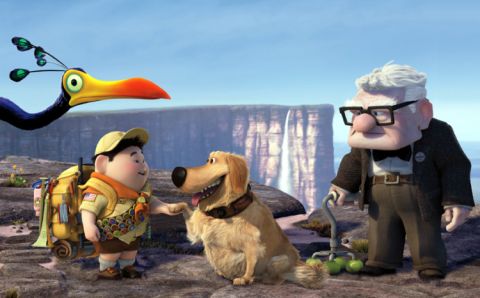 The Gay Uncle hasn’t seen the new movie, “Up”, but apparently an old woman dies in it. Obviously, this is not the first Disney film in which a female character buys the farm. In fact, Gunc is having a hard time remembering a Mickey-flick in which one doesn’t bite it. But in “Up”, the depiction is a bit more straightforward and unobscured than usual, and the bereaved is not a mermaid, a princess, or an adorable baby deer, but an increasingly embittered old man. So when the G.U.’s second-favorite newspaper columnist,
The Gay Uncle hasn’t seen the new movie, “Up”, but apparently an old woman dies in it. Obviously, this is not the first Disney film in which a female character buys the farm. In fact, Gunc is having a hard time remembering a Mickey-flick in which one doesn’t bite it. But in “Up”, the depiction is a bit more straightforward and unobscured than usual, and the bereaved is not a mermaid, a princess, or an adorable baby deer, but an increasingly embittered old man. So when the G.U.’s second-favorite newspaper columnist,